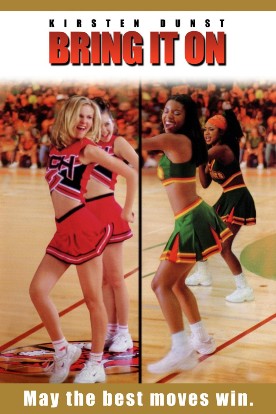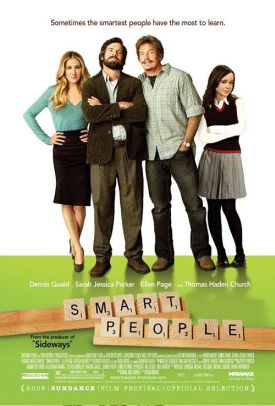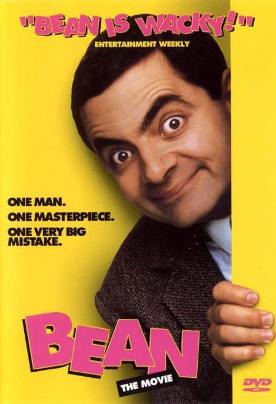Bring it On
Bring It On, directed by Peyton Reed, offers the movie connoisseur plenty of shots of high school girls in their underwear and some terrific choreography of synchronized cheering routines which seem to have little if anything to do with cheerleading in the traditional sense but which are apparently true to life. If so, they are the only things about this movie that are. And, watchable as it might be as a documentary about the national cheering championships, the drama to which the spectacle of the leaping maidens in their fetching “spanky pants” is attached is so feeble, the dialogue so appalling, that even a more athletic display than that on offer would hardly make it worth sitting through the film.
The story essays a socially responsible “message” by having the new captain of the cheerleading team, Torrance Shipman (Kirsten Dunst), discover that the routine which took her school to the national championship the previous year had been stolen from a black inner-city team from Los Angeles—a team too poor to go to the nationals themselves. Torrance must make amends to and win over the haughty and truculent black girls while at the same time coming up with an alternative routine that stands any chance at all in competition against them. When the two teams meet in the finals, the outcome is as predictable as the grudging respect that the two captains come to feel for each other.
Far worse than any such cliché as this, however, is the script by Jessica Bendinger. This is so determinedly, so aggressively “hip,” so completely sexualized, so terrified that its high school age subjects might appear as, well, high-schoolers in all their vulnerable innocence, that the constant in-your-face dialogue and sexual innuendo merely becomes wearying and unbelievable. Maybe California teenagers really do talk like this, but somehow I doubt it. Nor are even the most unparented of youngsters believably portrayed as being so utterly independent of any adult presence in their lives. Torrance has parents, who make two cameo appearances, and a teacher or two is glimpsed in passing, but otherwise everything in this upscale California community and its well-appointed high school takes place in the total absence of adult supervision.
Nor is the dialogue in the least witty or amusing, as I gather it is intended to be. Not unlesss you find witty or amusing the idea of a ten or eleven-year old boy who calls his older sister “Bitch!” and makes obscene gestures at her. Or teenage girls who call each other “whore” and snarl at their boyfriends, “Kiss my ass!” Or a male cheerleader digitally stimulating the genitals of the girl who is standing on one leg on his shoulder. Incredibly, given the film’s ostentatiously displayed social conscience, we are even apparently meant to find funny the cheerleading squad’s answer to characteristically foul-mouthed aspersions cast by another, representing a more proletarian (and more athletically successful) high school: “That’s all right, that’s OK/You’re gonna pump our gas someday.”
Moms and dads, if your cheerleader wants to see this movie, just say no.
Discover more from James Bowman
Subscribe to get the latest posts to your email.





